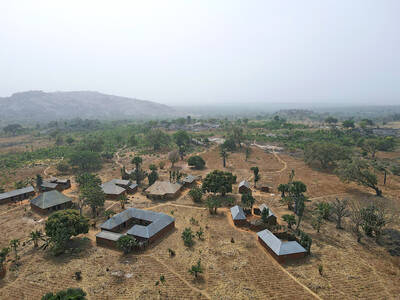Indians paid more than ?2.7 billion (US$4.8 billion) in bribes last year to receive public services, a study said on Friday, highlighting the systematic graft afflicting the country's fast-growing economy.
A report by the Center for Media Studies and backed by Transparency International, a global corruption watchdog, showed that corruption had become the rule and not the exception in India.
Of the 14,000 people interviewed in 20 states, more than 80 percent had paid a bribe to the police. A quarter had done so in government hospitals. In schools, ?500 million had been paid to get "admissions or certificates." The total value of "petty corruption" recorded in 11 government departments was ?2.7 billion.
"What we tried to highlight is the failure of the system for the common person in India," said K.R. Dharmadhikary of Transparency International.
"That you have to pay bribes to get the services that should be provided for you, such as electricity or water connections, is wrong," he added.
He said the total figure for corruption in India could be much higher as government funds which are stolen and the money used to bribe officials for contracts were not included.
The study also showed big regional variations. States such as Kerala and Himachal Pradesh, both with high literacy rates, were ranked as least corrupt. Bihar, where 35 million people live below the poverty line, was at the bottom of the list.
Political scientists said the problem of graft had worsened because of the emergence of "mafia politicians." Criminal elements make up a larger part of state assemblies than previously, particularly in northern India, where parties auction candidacies to the highest bidder.
"In a competition to get elected, you need muscle and money to win and then you need to find ways to pay back your election expenses," said Samuel Paul, director of the Public Affairs Center in Bangalore. "Just for a local assembly seat you can pay 130,000 pounds. One way of recouping such costs is petty corruption."
But the report said there were signs that the Indian establishment had woken up to the blight of bribery.
A number of anti-corruption groups have been using state right to information acts to scrutinize public projects for evidence of kickbacks or bribes.

‘TERRORIST ATTACK’: The convoy of Brigadier General Hamdi Shukri resulted in the ‘martyrdom of five of our armed forces,’ the Presidential Leadership Council said A blast targeting the convoy of a Saudi Arabian-backed armed group killed five in Yemen’s southern city of Aden and injured the commander of the government-allied unit, officials said on Wednesday. “The treacherous terrorist attack targeting the convoy of Brigadier General Hamdi Shukri, commander of the Second Giants Brigade, resulted in the martyrdom of five of our armed forces heroes and the injury of three others,” Yemen’s Saudi Arabia-backed Presidential Leadership Council said in a statement published by Yemeni news agency Saba. A security source told reporters that a car bomb on the side of the road in the Ja’awla area in

‘SHOCK TACTIC’: The dismissal of Yang mirrors past cases such as Jang Song-thaek, Kim’s uncle, who was executed after being accused of plotting to overthrow his nephew North Korean leader Kim Jong-un has fired his vice premier, compared him to a goat and railed against “incompetent” officials, state media reported yesterday, in a rare and very public broadside against apparatchiks at the opening of a critical factory. Vice Premier Yang Sung-ho was sacked “on the spot,” the state-run Korean Central News Agency said, in a speech in which Kim attacked “irresponsible, rude and incompetent leading officials.” “Please, comrade vice premier, resign by yourself when you can do it on your own before it is too late,” Kim reportedly said. “He is ineligible for an important duty. Put simply, it was

Syrian President Ahmed al-Sharaa on Sunday announced a deal with the chief of Kurdish-led forces that includes a ceasefire, after government troops advanced across Kurdish-held areas of the country’s north and east. Syrian Kurdish leader Mazloum Abdi said he had agreed to the deal to avoid a broader war. He made the decision after deadly clashes in the Syrian city of Raqa on Sunday between Kurdish-led forces and local fighters loyal to Damascus, and fighting this month between the Kurds and government forces. The agreement would also see the Kurdish administration and forces integrate into the state after months of stalled negotiations on

CHURCH ABDUCTIONS: Remarks by police and other officials were ‘intended to prevent unnecessary panic while facts were being confirmed,’ a spokesman said Nigerian police on Tuesday made an about-turn, saying that gunmen had abducted dozens of people during Sunday mass in northern Kaduna State after dismissing the initial reports. A senior Christian clergy and a village head had on Monday told reporters that more than 160 people were snatched from several churches on Sunday. A security report prepared for the UN said that more than 100 people had been kidnapped at multiple churches. The chief of police of Kaduna State and two senior government officials had initially issued denials, saying security officers had visited the scene of the alleged crimes and found no proof of